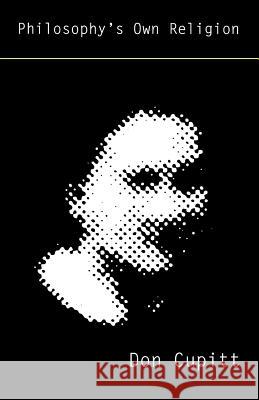Philosophy's Own Religion » książka
Philosophy's Own Religion
ISBN-13: 9780334028116 / Angielski / Miękka / 2000 / 192 str.
In this book Don Cupitt presents his systematic philosophy of religion. He begins by showing what is wrong with the way the subject is usually taught: scraps from various philosophies of the past are selected for use in the service of an agenda controlled by theology. Inevitably, the resqlt is, something closer to religious apologetics than to genuine philosophy. Cupitt sets out his alternative approach in two parts.The first is a 'democratic metaphysics'. Cupitt describes popular systematic philosophy as being today the most urgently needed, and yet the most neglected, kind of philosophy. He describes his own position as combining nihilism with radical humanism, and as 'a language-mediated radical religious humanism'. From this, Cupitt then derives 'philosophy's own religion': It is without dogma. It is a religion of life in which we learn to say Yes to, transience, to practise expressive or 'solar' living, and to be humanitarians in social ethics. r Philosophy's own religion is the religious outlook we would come tQ if we were to make a new beginning, and to be strictly rational. It is not wholly novel: versions of it'crop up often in the history of philosophy. Another version of it was the very earliest form of Christianity, the 'kingdom theology' of Jesus and the first generation
In this book Don Cupitt presents his systematic philosophy of religion. He begins by showing what is wrong with the way the subject is usually taught: scraps from various philosophies of the past are selected for use in the service of an agenda controlled by theology. Inevitably, the resqlt is,something closer to religious apologetics than to genuine philosophy.Cupitt sets out his alternative approach in two parts.The first is a democratic metaphysics. Cupitt describes popular systematic philosophy as being today the most urgently needed, and yet the most neglected, kind of philosophy. He describes his own position as combining nihilism with radical humanism, and as a language-mediated radical religious humanism.From this, Cupitt then derives philosophys own religion: It is without dogma. It is a religion of life in which we learn to say Yes to,,transience, to practise expressive or solar living, and to be humanitarians in social ethics.r Philosophys own religion is the religious outlook we would come tQ if we were to make a new beginning, and to be strictly rational. It is not wholly novel: versions of itcrop up often in the history of philosophy. Another version of it was the very earliest form of Christianity, the kingdom theology of Jesus and the first generation.











